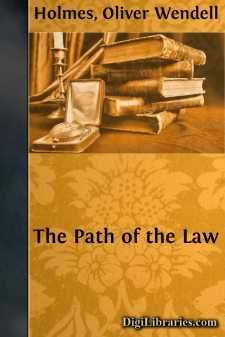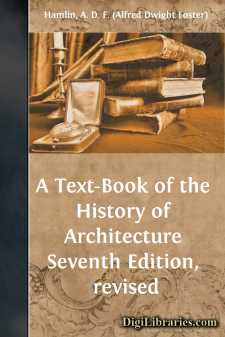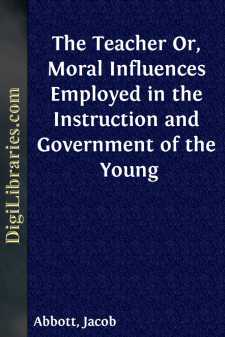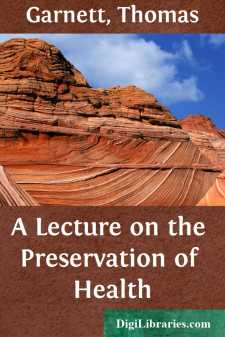Categories
- Antiques & Collectibles 13
- Architecture 36
- Art 48
- Bibles 22
- Biography & Autobiography 813
- Body, Mind & Spirit 142
- Business & Economics 28
- Children's Books 17
- Children's Fiction 14
- Computers 4
- Cooking 94
- Crafts & Hobbies 4
- Drama 346
- Education 46
- Family & Relationships 57
- Fiction 11829
- Games 19
- Gardening 17
- Health & Fitness 34
- History 1377
- House & Home 1
- Humor 147
- Juvenile Fiction 1873
- Juvenile Nonfiction 202
- Language Arts & Disciplines 88
- Law 16
- Literary Collections 686
- Literary Criticism 179
- Mathematics 13
- Medical 41
- Music 40
- Nature 179
- Non-Classifiable 1768
- Performing Arts 7
- Periodicals 1453
- Philosophy 64
- Photography 2
- Poetry 896
- Political Science 203
- Psychology 42
- Reference 154
- Religion 513
- Science 126
- Self-Help 84
- Social Science 81
- Sports & Recreation 34
- Study Aids 3
- Technology & Engineering 59
- Transportation 23
- Travel 463
- True Crime 29
Sort by:
by:
Walter Crane
PREFACE As in the case of "The Bases of Design," to which this is intended to form a companion volume, the substance of the following chapters on Line and Form originally formed a series of lectures delivered to the students of the Manchester Municipal School of Art. There is no pretension to an exhaustive treatment of a subject it would be difficult enough to exhaust, and it is dealt with in a...
more...
by:
F. F. Arbuthnot
PREFACE. The following pages contain nothing new and nothing original, but they do contain a good deal of information gathered from various sources, and brought together under one cover. The book itself may be useful, not, perhaps, to the Professor or to the Orientalist, but to the general reader, and to the student commencing the study of Arabic. To the latter it will give some idea of the vast field...
more...
10 HARVARD LAW REVIEW 457 (1897) When we study law we are not studying a mystery but a well-known profession. We are studying what we shall want in order to appear before judges, or to advise people in such a way as to keep them out of court. The reason why it is a profession, why people will pay lawyers to argue for them or to advise them, is that in societies like ours the command of the public force...
more...
PREFACE. The aim of this work has been to sketch the various periods and styles of architecture with the broadest possible strokes, and to mention, with such brief characterization as seemed permissible or necessary, the most important works of each period or style. Extreme condensation in presenting the leading facts of architectural history has been necessary, and much that would rightly claim place...
more...
by:
Steve Solomon
First, you should know why a maritime Northwest raised-bed gardener named Steve Solomon became worried about his dependence on irrigation. I'm from Michigan. I moved to Lorane, Oregon, in April 1978 and homesteaded on 5 acres in what I thought at the time was a cool, showery green valley of liquid sunshine and rainbows. I intended to put in a big garden and grow as much of my own food as possible....
more...
INTRODUCTION. OUR age is retrospective. It builds the sepulchres of the fathers. It writes biographies, histories, and criticism. The foregoing generations beheld God and nature face to face; we, through their eyes. Why should not we also enjoy an original relation to the universe? Why should not we have a poetry and philosophy of insight and not of tradition, and a religion by revelation to us, and...
more...
by:
Jacob Abbott
CHAPTER I.INTEREST IN TEACHING. There is a most singular contrariety of opinion prevailing in the community, in regard to the pleasantness of the business of teaching. Some teachers go to their daily task, merely upon compulsion: they regard it as intolerable drudgery. Others love the work: they hover around the school-room as long as they can, and never cease to think, and seldom to talk, of their...
more...
CHAPTER I CHOOSING A PLACE TO LIVE Blessed indeed are they who are free to choose where and how they shall live. Still more blessed are they who give abundant thought to their choice, for they may not wear the sackcloth of discomfort nor scatter the ashes of burned money. Most of us have a theory of what the home should be, but it is stowed away with the wedding gifts of fine linen that are cherished...
more...
by:
Thomas Garnett
A LECTURE, &c. THE greatest blessing we enjoy is health, without it, wealth, honors, and every other consideration, would be insipid, and even irksome; the preservation of this state therefore, naturally concerns us all. In this lecture, I shall not attempt to teach you to become your own physicians, for when the barriers of health are once broken down, and disease has established itself, it...
more...
by:
Various
I THE GROUNDS OF UNITY In face of the greatest tragedy in history, it is to history that we make appeal. What does it teach us to expect as the issue of the conflict? How far and in what form may we anticipate that the unity of mankind, centring as it must round Europe, will emerge from the trial? Only two occasions occur to the mind on which, since the break up of the Roman Empire, a schism so serious...
more...











